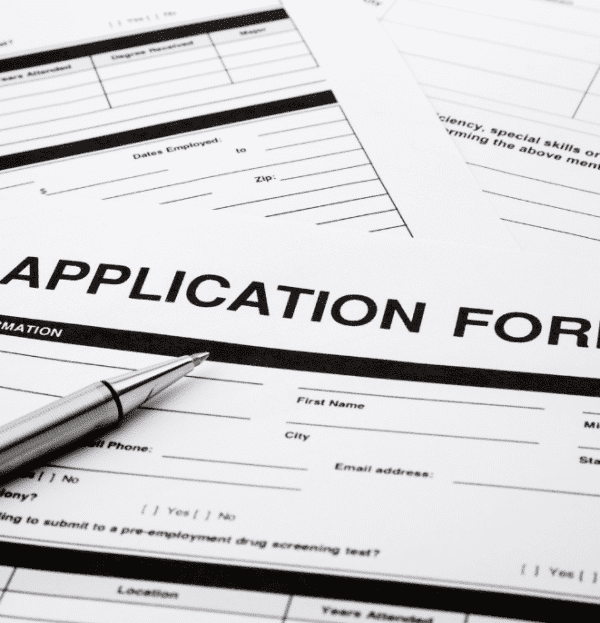
Form I-129CW, entitled Petition for a CNMI-Only Nonimmigrant Transitional Worker, is a document utilized by employers within the Commonwealth of the Northern Mariana Islands (CNMI). These employers submit the form to the U.S. Citizenship and Immigration Services (USCIS) to petition for alien workers ineligible for other employment-based nonimmigrant classifications to work temporarily as a CW-1, CNMI-Only Transitional Worker.
Eligibility: An employer may file Form I-129CW to classify an alien worker as a CW-1 worker if they are temporarily employing the worker in the CNMI.
Purpose: The form serves to verify the employer’s need for a foreign worker under the terms that adhere to the approved worker’s category. It’s also employed when seeking an extension of stay or change of status for a CW-1 worker.
Filing Requirements: Employers must complete the necessary sections of Form I-129CW and provide evidence that demonstrates the legitimacy of the employment need in CNMI.
Verification: Post approval, employers use Form I-129CWR, known as the Semiannual Report for CW-1 Employers, to confirm ongoing employment and compliance with the terms of the approved petition.
By meeting the specific criteria set by the USCIS, the Form I-129CW allows for the smooth process of hiring nonimmigrant workers in specialized roles where locals are not available to meet the labor demands in the CNMI. The process ensures that both the rights of the workers and the interests of the employers are safeguarded.
The eligibility for Form I-129CW revolves around strict criteria that both employers and foreign workers must meet to qualify for the CW-1 visa program in the CNMI.
Employers applying for Form I-129CW must be operating within the Commonwealth of the Northern Mariana Islands (CNMI). They should ensure:
Foreign workers qualify for CW-1 status via Form I-129CW if they:
The Form I-129CW filing process involves precise steps that employers must follow to petition for a CNMI-Only Nonimmigrant Transitional Worker. The following sections provide a structured outline of the required documentation, associated costs, submission procedures, and expected processing timelines.
Payment can be made via:
Employers must:
Processing times for Form I-129CW vary and can be checked on the USCIS website for the most accurate information. Employers can:
In fulfilling their responsibilities, employers utilizing the I-129CW form must adhere to both worker protections and regulatory compliance. These two facets ensure the welfare of the CW-1 workers and uphold the integrity of the immigration system.
Employers are mandated to safeguard the rights and well-being of CW-1 workers. This includes provision of fair wages, safe working conditions, and adherence to the terms of the approved petition. Failure to meet these standards could result in penalties or revocation of the employer’s right to hire nonimmigrant workers.
Employers must also remain compliant with all federal and CNMI regulations. Record-keeping is a pivotal aspect, requiring careful documentation of each worker’s employment and remuneration. Compliance includes timely submission of necessary reports, such as the Semiannual Report for CW-1 Employers, to confirm ongoing adherence to the terms stipulated by the USCIS.
When employing a worker under Form I-129CW for the CNMI-Only Nonimmigrant Transitional Worker classification, employers are obliged to adhere to the federally mandated rights and protections for these workers.
Key Protections:
Important Aspects to Note:
By enforcing these provisions, the U.S. government aims to protect the welfare of CNMI-Only Transitional Workers and maintain a fair and equitable working environment. Employers found to be in violation may face legal consequences, including the revocation of the granted petition.
Employers seeking to retain a CW-1 nonimmigrant worker in the Commonwealth of the Northern Mariana Islands (CNMI) must adhere to specific renewal and extension procedures outlined by U.S. Citizenship and Immigration Services (USCIS).
To qualify for a renewal of a CW-1 visa, the employer must file Form I-129CW before the worker’s status expires. The petition should demonstrate that the position remains consistent with the terms and conditions of the original approval. Essential renewal criteria include:
For an extension, the Form I-129CW must include:
Extensions are subject to the same approval standards as initial petitions, requiring proof that the employment conditions have not changed unfavorably.
When filling out Form I-129CW, petitioners often encounter specific issues that can result in delays or denials. Understanding these problems and their resolutions helps ensure smoother processing.
Issue: A common problem is incomplete applications, where petitioners miss out on providing all the required information.
Resolution:
Issue: When a Form I-129CW is denied, it can be due to various reasons such as failure to meet eligibility criteria, lack of evidence, or incorrect application details.
Resolution:
Employers looking for guidance on filing Form I-129CW have several resources at their disposal. U.S. Citizenship and Immigration Services (USCIS) is the primary source for updated forms and instructions. Employers should:
For more detailed assistance, the following resources are available:
Employers can also benefit from the following:
| Resource Type | How It Helps |
|---|---|
| Online Tutorials | Offers step-by-step guidance on how to fill out the form. |
| Community Forums | Enables employers to discuss and share experiences with one another. |
| Immigration Lawyers | Provides expert legal assistance for complex situations. |
| Employer Information Bulletins | Keeps employers informed on updates about CW-1 visa regulations and processes. |
For submitting the semiannual report, USCIS Form I-129CWR is used, and it is important to start the process well in advance to avoid delays.
Ensuring the accuracy of every detail in Form I-129 is crucial for employers. Don’t forget the Additional Worker Attachment for multiple beneficiaries. Navigating the intricacies of nonimmigrant worker petitions can be challenging, so seeking professional legal advice is always a wise move. Remember, precision matters when dealing with Form I-129.